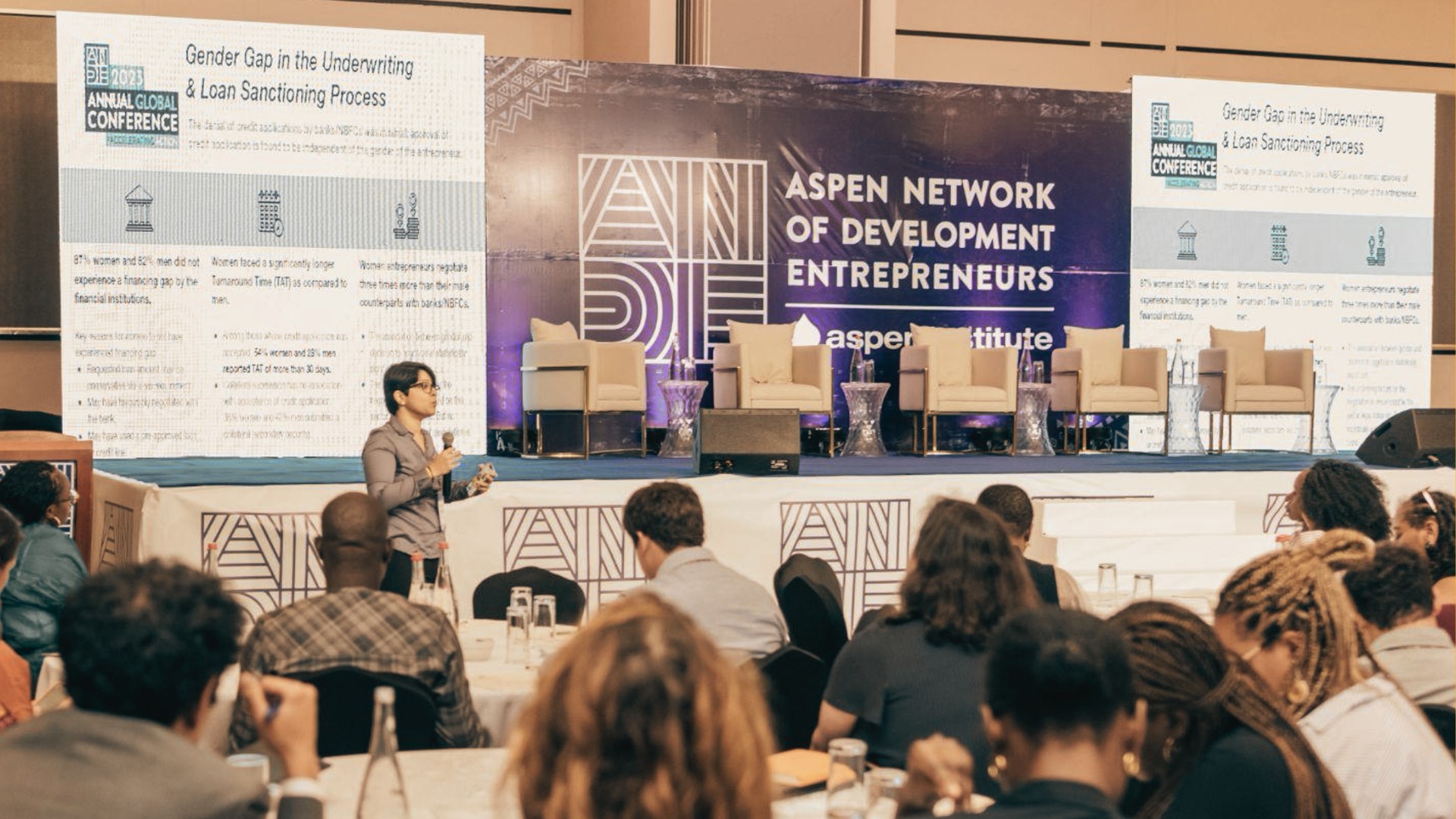
Participating at ANDE’s Global Summit last September in Accra, Ghana, Preethi Rao, Director of Partnerships & Outreach for LEAD at Krea University, witnessed passionate and experience-based discussions on bridging finance gaps for women entrepreneurs and connecting craft-based enterprises with markets, paving the way for collaborative south-south solutions and a sustainable impact in the global entrepreneurial ecosystem. This is her account.
Across continents and ideas: an exchange of ideas
The ANDE Global Summit 2023, held in the spirit of inclusivity in the global south, marked a memorable milestone in addressing the challenges faced by small and growing businesses (SGBs). The breadth of session topics spanned climate change, sustainability, financing, and market linkages, targeting every critical area relevant to an SGB. The innovative session formats varied from micro TED-style talks and mini roundtables to comprehensive panels.
My engagement was profound as I facilitated a mini roundtable titled “Connecting Crafts-based Enterprises with Markets: Challenges and Emerging Innovations,” and contributed to a panel discussion on “Building the Ecosystem for Women Entrepreneurs: Action-Based Learnings from ANDE’s Gender Equality Initiative (AGEI).” The roundtable fostered cross-learning among stakeholders, integrating international perspectives to the challenges we face in India. We discovered local e-commerce platforms in Ghana, like Congo and Jumia, and noted Amazon’s absence. The group acknowledged intermediaries’ essential role in market access despite the downside of reduced margins, particularly for marginalized entrepreneurs. The approach of collective entrepreneurship mirrored in Ghana and Ethiopia, was highlighted as a means to strengthen bargaining power, especially for craft-based entrepreneurs. Notably, art museums, supported by private and public sectors, were identified as valuable venues for showcasing creative products. This marked the recognition of Creative Manufacturing and Handmade as a significant evolution in the sector’s identification.
The panel shed light on innovative projects spurred by the gender equality initiative. I presented LEAD’s research on the financing gaps for women SGBs and proposed solutions. The study aimed to understand the gender differential in access, assess current credit products/services in India, and suggest improvements in product design.
Key findings emphasized the importance of referrals and networks for better credit terms and gender sensitization among bank staff to expedite loan processes. These findings resonated globally, as exemplified in the breakout sessions where participants from Ghana to the Netherlands stressed the need for enhanced capacity building for women entrepreneurs in documentation, business planning, and access to information, facilitating smoother loan applications.
The insights from these discussions are invaluable for advancing our research agenda and fostering south-south collaborations to generate sustainable impact.ΔΝDΞ
By Preethi Rao, Director of Partnerships & Outreach for LEAD at Krea University.
